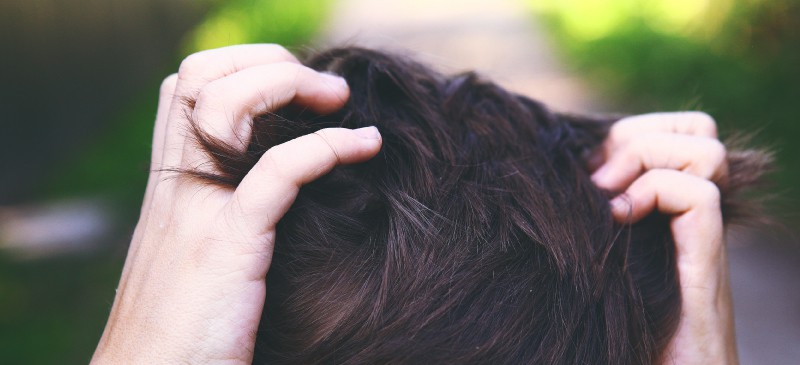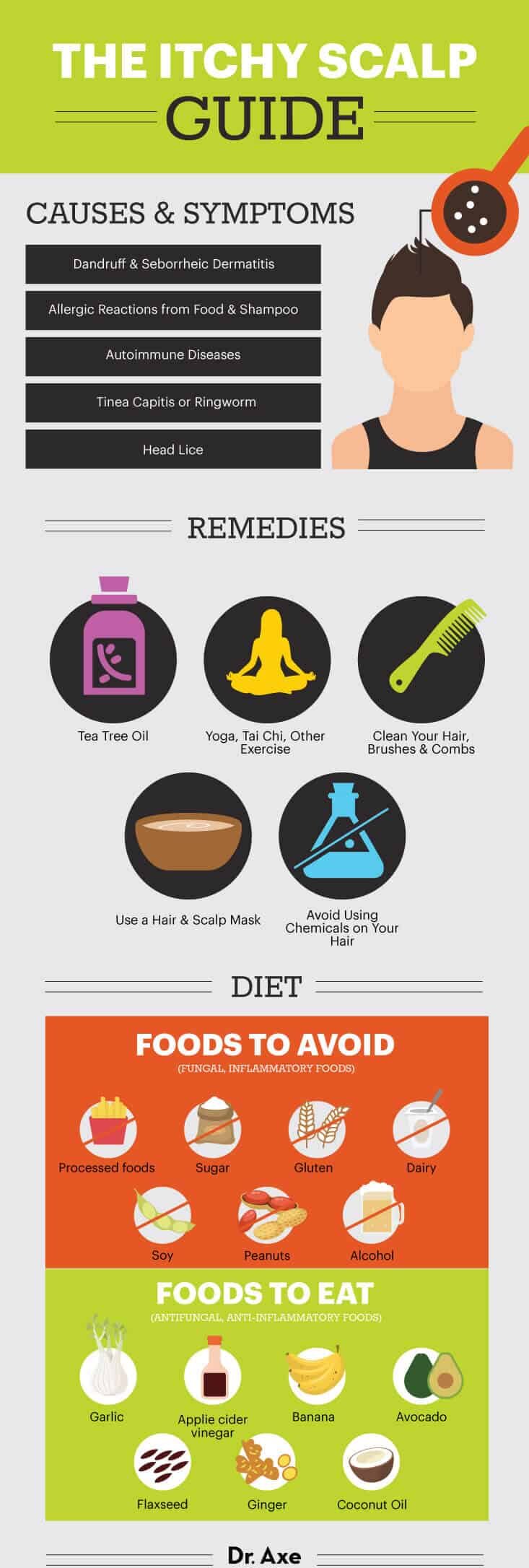This Dr. Axe content is medically reviewed or fact checked to ensure factually accurate information.
With strict editorial sourcing guidelines, we only link to academic research institutions, reputable media sites and, when research is available, medically peer-reviewed studies. Note that the numbers in parentheses (1, 2, etc.) are clickable links to these studies.
The information in our articles is NOT intended to replace a one-on-one relationship with a qualified health care professional and is not intended as medical advice.
This article is based on scientific evidence, written by experts and fact checked by our trained editorial staff. Note that the numbers in parentheses (1, 2, etc.) are clickable links to medically peer-reviewed studies.
Our team includes licensed nutritionists and dietitians, certified health education specialists, as well as certified strength and conditioning specialists, personal trainers and corrective exercise specialists. Our team aims to be not only thorough with its research, but also objective and unbiased.
The information in our articles is NOT intended to replace a one-on-one relationship with a qualified health care professional and is not intended as medical advice.
What an Itchy Scalp Means & How to Get Rid of It Naturally
December 8, 2023

Do you have an itch? Some scratch their heads while giving something some serious thought in a “hmm, let me think about that” sort of moment. But for many others, a serious scratching is desired because there is a genuine and persistent itch on the head, specifically an itchy scalp.
Often, we assume it must be dandruff, a common problem, but there are many conditions that can cause a dry, itchy scalp — or scalp pruritus — in addition to dandruff, such as ringworm or even a bacterial infection caused by an autoimmune condition.
With itching being the most common symptom, skin infections, swelling, redness, balding and damaged hair may also result from an itchy scalp. Common treatments are usually in some form of antimicrobial or keratolytic therapy (overseen by a dermatologist), steroids and special diets.
However, there is no doubt that one of the most effective treatments for itchy scalp is a good old shampoo scrub to help remove loose and scaly skin. And to really stop the itch long-term, you need to find out what’s causing it. Let’s look at some of the best natural treatments for an itchy scalp and the most common causes.
6 Natural Remedies for Itchy Scalp
1. Tea Tree Oil
Tea tree oil is an amazing essential oil also known as melaleuca. What’s great about tea tree oil is that it provides antioxidant benefits and is antimicrobial, which means it has the ability to fight bacteria, viruses and fungus. According to research published in the International Journal of Dermatology, numerous studies have shown that tea tea oil is great for various inflammatory symptoms, including seborrheic dermatitis, ultimately helping with the healing process.
Another study published in the Journal of the American Academy of Dermatology closely followed the results that tea tree oil had on subjects with dandruff using a shampoo that contained 5 percent tea tree oil. An improvement of 41 percent was reported by those who used the tea tree oil shampoo, helping relieve itchy scalp and dandruff itself.
2. Clean Your Hair, Brushes and Combs
While not all causes of itchy scalp have anything to do with a contagious condition, some, such as tinea capitis, do. Maintaining good personal hygiene is very important in addition to avoiding sharing combs and brushes.
Since tinea capitis, or ringworm, is more common in children, make sure to take extra care with educating your children on these best practices and simple natural remedies.
3. Use a Hair and Scalp Mask
Have you ever tried a banana, avocado and honey hair and scalp mask? These three ingredients can actually do some pretty phenomenal things to your head and scalp. Honey, for example, has long been known as an ancient remedy for wound healing, with many reports suggesting that the microorganisms found in honey help fight bacteria and fungi.
A hair mask can provide the perfect bacteria fighters and, if used a few times a week, can really make a difference in a healthy way. Simply combine a small mashed banana, two tablespoons of honey and half an avocado until well-blended. Then apply it to your hair, making sure to cover the scalp. Leave it on for 20–30 minutes, then wash hair with a natural shampoo.
4. Avoid Inflammatory, Infection-Causing Foods
Much like candida, fungus can be caused and inflamed due to foods you eat. It’s critical that you avoid inflammatory foods, such as anything processed, sugar, gluten, dairy, soy, peanuts and alcohol, to name a few.
The best thing you can do is make sure your diet is filled with antifungal foods. Some of those foods include garlic, apple cider vinegar, banana, avocado, flaxseed, ginger and coconut oil.
5. Avoid Putting Chemicals on Your Hair
Chemicals are found in most products found on the shelves at your local store. These chemicals can lead straight to an itchy scalp, bumps on the scalp and other scalp conditions. The good news is that this is an easy fix. By avoiding chemicals and choosing natural remedies, you can bypass the negative effects.
Opt for making your own — such as rosemary mint shampoo, homemade conditioner or apple cider vinegar hair rinse — and see if that solves the problem. Because many of these suds contain chemicals and other other rash-causing agents, they may irritate the scalp. This irritation can cause lots of itching and redness, and even present allergic reactions, such as hives and wheezing.
6. Glycerin
A study in SKINmed Journal investigated how effective a moisturizing leave-on lotion containing a high concentration of glycerol (10 percent) and other known scalp benefitting agents (saturated fatty acid and sunflower seed oil) to reduce dandruff over an eight-week treatment period with three applications per week.
Results included a significant reduction in the dandruff, including better water barrier function and hydration, over the span of the trial. Glycerin also showed how it helped relieve an itchy scalp.
7. Aloe Vera
Aloe vera is a great natural treatment for dry hair or an itchy scalp. It has nourishing properties, and the vitamins and minerals that are present in the plant keep your hair strong and healthy. Because of its antibacterial and antifungal properties, studies indicate that it helps with dandruff, and the gel’s enzymes can rid the scalp of dead cells and promote the regeneration of skin tissue around the hair follicles.
Aloe also helps stop the itching associated with dandruff or a dried scalp. Too many shampoos and conditioners are full of chemicals that damage hair and can even cause inflammation and skin irritations; adding aloe vera is an effective way to keep your scalp free of bacteria and uncomfortable skin reactions.

Itchy Scalp Causes
1. Dandruff and Seborrheic Dermatitis
Dandruff and seborrheic dermatitis are the most common when it comes to itchy scalp causes. Itching and flaking are how the body responds to the inflammation of the overgrowth of yeast. Yeast is typically found on the scalp and other areas of the body where more hair is located. While the presence of yeast is common, it’s the over-presence of yeast that creates the problem. In particular, a yeast called malassezia can cause excess skin cell growth and irritate the scalp.
To get more specific, dandruff and seborrheic dermatitis are of a continuous spectrum of the same disease that affects the seborrheic areas of the body, and often those who have eczema will have dandruff. Dandruff occurs on the scalp and usually involves itchy, flaking skin, but you many not see actual inflammation.
On the other hand, seborrheic dermatitis can affect the scalp (including having a sensitive scalp) as well as other areas of the body, but in addition to itchy, flaking or scaly skin, which can be severe, it involves inflammation. Characteristics like the immune system, genetics, emotional stress and nutrition can all affect the actual occurrence and severity of dandruff and seborrheic dermatitis.
2. Allergic Reactions from Food and Shampoos
Allergic reactions can occur from numerous sources, but two of the most common sources are from your food and your shampoo. There are so many foods, such as processed sugar, peanuts and soy products, that contain inflammation- and fungus-causing attributes, and unless you avoid them, you’re likely to have some problems.
Additionally, if your shampoo or hair color contains tons of chemicals, it’s possible that your scalp is having an allergic reaction to those chemicals, known as contact dermatitis. There are options, but one of the first things you should do is stop using your current shampoo, hair color and conditioner to see if the problem subsides.
3. Autoimmune Disease
Psoriasis is a chronic autoimmune disease, and psoriasis symptoms include raised, reddish, scaly patches on the skin or scalp. Though we know that psoriasis is hereditary, experts don’t have a clear understanding of the cause.
It’s been reported that at least 10 percent of those who inherit one or more of the genes could lead to psoriasis, but only 2 percent to 3 percent actually develop the disease. It’s important that you do not let psoriasis linger without attention, as it can lead to an itchy scalp and worsen if not treated.
4. Tinea Capitis (Ringworm) or Lichen Planopilaris
Tinea capitis is a fungal infection, commonly known as ringworm, that often causes infection in the scalp area. It happens due to a deep extension of the fungus into the hair follicle and can develop into round patches of hair loss (aka Alopecia areata). It often appears as a raised rash and may have black dots or a stubbly appearance. Related skin infections are often found in a man’s beard, in the groin known as jock itch, and between the toes commonly, known as athlete’s foot.
Fungus can live on the dead tissue in the hair, nail and outer skin areas. Tinea capitis is more likely if you have minor skin or scalp injuries, don’t bathe or wash your hair often, or have wet skin for a long periods of time, often from sweating. It easily spreads, affecting children mostly, but usually disappears into puberty. Unlike psoriasis, tinea capitis or ringworm can spread through human or animal contact, combs and brushes, hats, or any other clothing that has come into contact with the fungus.
Similarly, an inflammatory condition called lichen planopilaris (LPP) causes patchy hair loss, mainly on the scalp, and can cause an extremely itchy scalp.
5. Head Lice
Head lice may be considered something that happens only with kids in school, but those little creatures can invade the head of an adult too. In fact, lice actually prefer clean hair.
Symptoms of lice are most commonly itching on the scalp, neck and ears, which is an allergic reaction to the saliva the lice produce. Sometimes itching may not occur for two to six weeks after infestation, especially for anyone infected for the first time. The eggs of lice, known as nits, are super tiny and attach to individual hair strands. This can appear as dandruff, but unlike flakes of dandruff, they aren’t easily shaken off due to their firm grip of the hair shaft.
Final Thoughts
As noted above, make sure you don’t share combs and brushes. If you experience any allergic reactions and are not sure why, begin a process of elimination to help find the culprit. Again, chemicals in shampoos, conditioners and other hair products along with some foods you may be eating can cause itchy scalp and irritations of the scalp. If any severe cases arise or the problem persists, make sure to see a doctor right away.
Finding a solution for itchy scalp may be simple. Take the time to go through different options to see if you can find the culprit, and then take action. Waiting around will only allow it to fester and worsen.




